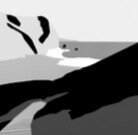As a primer - have a look at http://www.bioethicsscreenreflections.com and http://www.septemberwilliams.com/what-is-bioethics/
Casuistry in its simplest form is using cases or narratives to argue points of conflict and promote their resolutions. Medicine and Law are both fields where cases are used to model approaches to ethical decisions in complicated situations. Religious books, literature, drama and film can be used in Casuistry. Moral reasoning does not have to be facilitated only by narratives in a specific field.. And yes, Casuistry can be badly abused in science, medicine an morally. At its core, Casuistry requires solving a second unrelated case, using the logic of the original narrative. Closely related to Casuistry is Carl Jung's theory that there are archetypes to which the human psyche best responds. Author Christopher Booker, after 34 years analyzing literature, theorized that writers tell stories in one of 7 archetypical forms. Those forms, still follow the Aristotelian Plot Curve evolving response from the readers. These 7 plot forms are referred to as Universal Stories and their appeal reflect matters transcending race, culture, class or whatever man-made separations there are between people.





